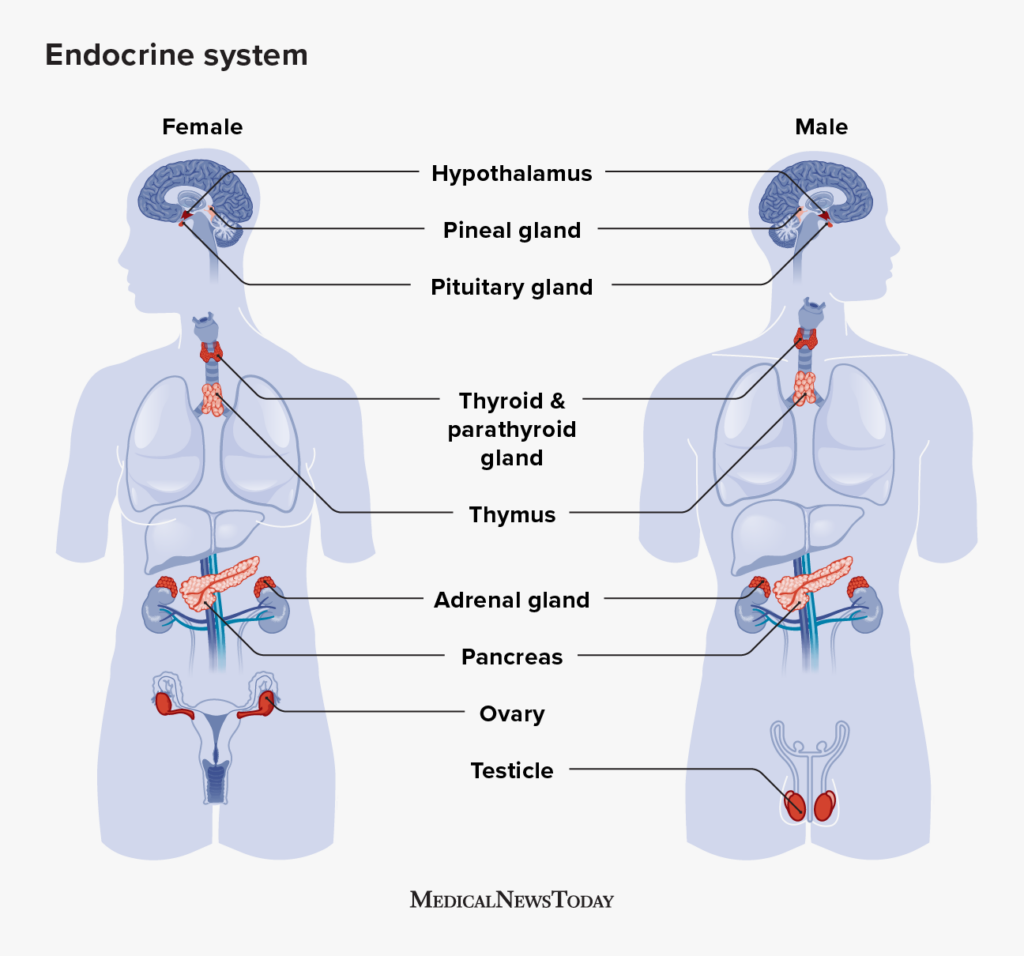Endocrinologist in Cedar Park: Comprehensive Hormone Wellness Solutions
Wiki Article
Browsing the Intricacies of Thyroid Problems With an Endocrinologist
In this article, we will explore the importance of seeking specialist help from an endocrinologist when dealing with thyroid disorders. We will certainly dive right into the understanding of various thyroid problems, the relevance of exact medical diagnosis, and the available therapy options. In addition, we will review the continuous administration and support needed for people with thyroid conditions.Understanding Thyroid Problems
Thyroid conditions can be much better understood with assistance from an endocrinologist. Hypothyroidism, for example, occurs when the thyroid does not produce enough hormonal agents, resulting in signs and symptoms such as tiredness, weight gain, and depression.Comprehending thyroid conditions calls for a detailed evaluation of a person's case history, health examination, and laboratory examinations. This is where the experience of an endocrinologist ends up being important. Endocrinologists focus on the medical diagnosis and treatment of hormonal disorders, including thyroid disorders. They possess the knowledge and experience to properly translate laboratory outcomes, determine the underlying source of the problem, and suggest proper therapy choices.
Additionally, endocrinologists recognize with the most recent developments in thyroid research, which enables them to provide the most effective and up-to-date therapy approaches. Endocrinology. They can prescribe drug to manage hormone levels, suggest way of living adjustments, and deal assistance on taking care of signs and symptoms. In even more intricate cases, they may team up with other specialists to make certain thorough treatment

Value of an Endocrinologist
An endocrinologist plays a crucial function in the diagnosis and management of thyroid conditions, providing customized experience and expertise in hormonal problems. With their substantial training in the endocrine system, these physician are uniquely certified to treat and evaluate thyroid problems.One of the crucial factors why an endocrinologist is very important in the management of thyroid problems is their ability to precisely diagnose the problem. Thyroid disorders can be complicated, with symptoms that may overlap with other clinical conditions. An endocrinologist has the experience to conduct a detailed assessment, consisting of a comprehensive case history, checkup, and specialized examinations to properly identify the details thyroid problem.
Moreover, an endocrinologist is equipped to establish a customized treatment prepare for each individual client. They take into consideration factors such as the type and extent of the thyroid disorder, the individual's overall health and wellness, and their choices. This customized technique makes certain that the treatment plan is enhanced for the person's specific needs, resulting in much better results.
Along with diagnosis and treatment, an endocrinologist also plays a vital role in long-lasting administration of thyroid conditions. They check the person's thyroid hormone levels, change medicine does if needed, and provide ongoing support and education and learning to assist individuals properly handle their problem.
Diagnosing Thyroid Disorders
The endocrinologist's know-how reaches properly detecting thyroid problems with a detailed analysis, consisting of an in-depth clinical history, health examination, and specialized examinations (Best endocrinologist in austin). This technique enables the endocrinologist to gather crucial details concerning the individual's signs, medical history, and family members history, which can provide valuable understandings right into the potential sources of the thyroid problemDuring the physical examination, the endocrinologist will carefully check out the individual's neck for any signs of swelling or problem in the thyroid gland. They might likewise examine for other physical signs, such as adjustments in hair appearance, skin dry skin, or protruding eyes, which can be a measure of thyroid conditions.
Along with the case history and physical examination, the endocrinologist might get specialized tests to more evaluate the function of the thyroid gland. These examinations might include blood tests to gauge the levels of thyroid hormones, thyroid-stimulating hormone (TSH), and antibodies that might be connected with autoimmune thyroid problems. Imaging examinations, such as ultrasound or nuclear medication scans, might also be done to analyze the size, shape, and framework of the thyroid gland.
Therapy Alternatives and Management
There are many therapy alternatives readily available for handling thyroid conditions. The selection of therapy depends on the particular type and seriousness of the thyroid condition, along with specific person factors. In cases of hypothyroidism, where the thyroid gland does not produce adequate thyroid hormones, the most common treatment is hormone replacement therapy. This entails taking synthetic thyroid hormones, normally in the type of an everyday tablet. The dosage visit homepage of the hormone replacement medicine is thoroughly kept an eye on and changed by an endocrinologist to make sure ideal thyroid hormonal agent degrees in the body.For hyperthyroidism, where the thyroid gland generates too much amounts of thyroid hormones, treatment options include drugs, radioactive iodine treatment, or surgical treatment. Medications, such as beta blockers, can be suggested to handle signs and symptoms and reduce the manufacturing of thyroid hormones.
In enhancement to these traditional therapies, there are also different treatments that some people may consider, such as organic supplements, acupuncture, or dietary modifications. It is vital to note that these alternative therapies should be gone over with an endocrinologist to guarantee they are reliable and risk-free.
Long-Term Treatment and Support
Long-term care and support for individuals with thyroid problems involves continuous tracking and tailored treatment plans offered by an endocrinologist. After an initial medical diagnosis and therapy, it is crucial for clients to proceed getting normal follow-up like ensure that their thyroid feature remains stable and that any potential complications are identified and dealt with promptly.
Normal monitoring go right here of thyroid hormonal agent levels with blood examinations allows the endocrinologist to assess the effectiveness of the treatment strategy and make any kind of required modifications. cole eye institute This close tracking likewise enables the early detection of any type of modifications in thyroid function and the identification of potential regressions or difficulties, such as the growth of blemishes or the development of thyroid cancer. Depending on the specific needs of the person, surveillance might occur every couple of months or on an annual basis.

Verdict
With their knowledge and experience, endocrinologists can offer long-lasting care and assistance to individuals with thyroid conditions. By seeking the assistance of an endocrinologist, people can receive the required care and management to efficiently browse their thyroid condition. Endocrinologist in georgetown.
Report this wiki page